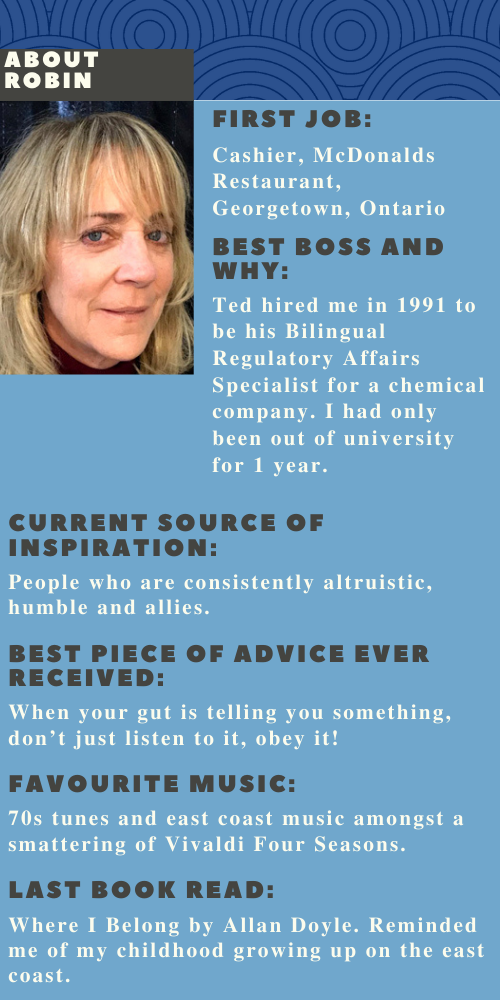When did you decide you wanted a career in occupational health and safety?
My passion for safety was sparked when I took my first WHMIS course. After finishing university, I became a laboratory technician analyzing a variety of substances that transitioned from raw materials to final products at a used-oil recycling refinery. The analysis required the knowledge of a myriad of chemicals and testing instruments - WHMIS and chemical safety were paramount.
What was your first occupational health and safety position?
Bilingual Regulatory Affairs Specialist at a large chemical manufacturing facility in southern Ontario.
Tell me about your current job. What are your main areas of responsibility?
I am currently working for the Department of Justice (DOJ) in the province of Nova Scotia. At the beginning of the pandemic, I was seconded for an 8-week period to provide OHS expertise to the DOJ Correctional Services division. My secondment has been extended until November 2022 at which time I will return to my role as Regional Director OHS for the Department of Labour & Advanced Education in the province of Nova Scotia.
What do you love about your career in OHS?
The world of OHS is constantly changing and transforming. I have had a myriad of different roles during my 30 years in OHS, all of which resulted in continuous learning and successive opportunities.
What are the challenges you experience in your job?
Gaining a deeper knowledge of infection and prevention control (IPAC). This has been a major component of my work with Correctional Services. To enhance my knowledge, I am enrolled in the Queens University IPAC diploma program.
What skills are important for success in the OHS field?
Competencies in the areas of critical thinking, strategic orientation, innovativeness, adaptability and flexibility are essential to a successful career in the field of OHS.
What tips do you have for new grads or those in entry level OHS positions who want to move up the ladder?
Go beyond just accepting change to being a created of change and new ideas. Do seek opportunities that for continuous self-improvement, engage with your peers and find a mentor that can be your sounding board.
The OHS field has been evolving. What changes excite you most?
Increased emphasis on post-secondary education specifically designed for the practice of OHS. This will enable the profession to stand amongst other professions that are already recognized as professions.
What’s the future of the OHS profession?
I hope that the future of the OHS profession is one that requires certification of all the people that include themselves in the arena of the OHS profession.
What do you do when you are not working?
I am a Fibre Artist. I card, dye, spin, needle felt and wet felt sheep fleeces from start to finish. My passion for this craft started when I raised my own sheep. From then on I was hooked. Like OHS, fibre art is limitless and provides a canvas to express and create.

